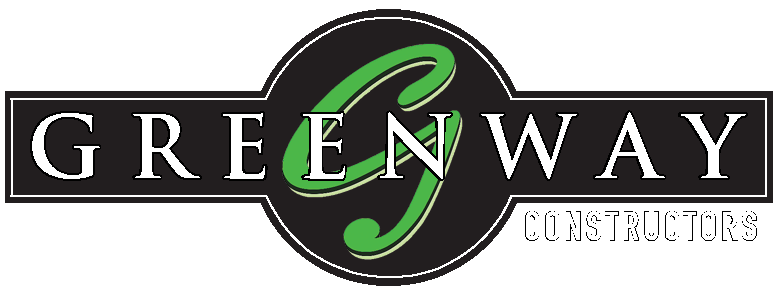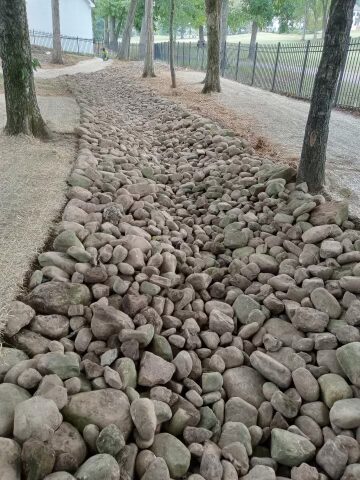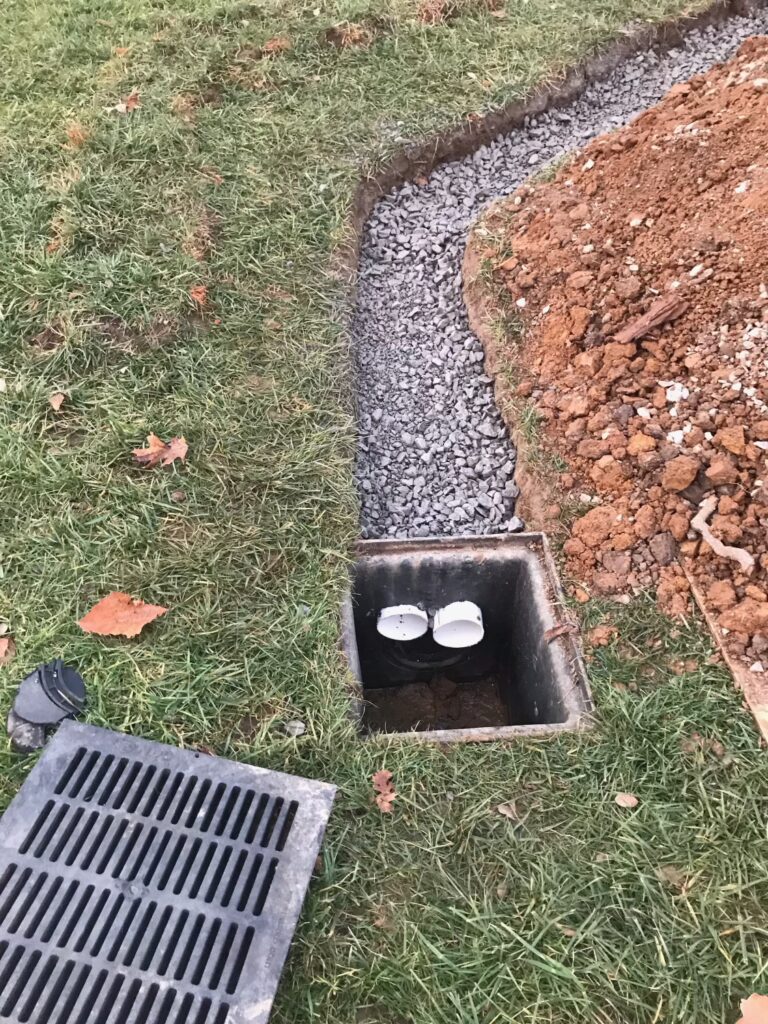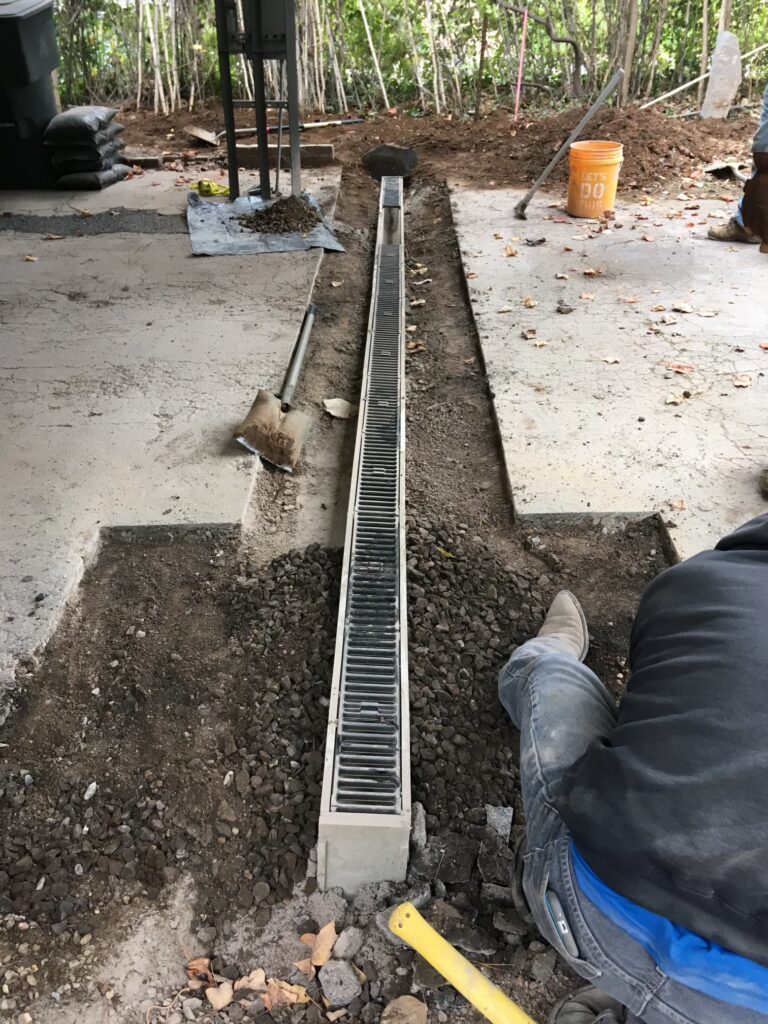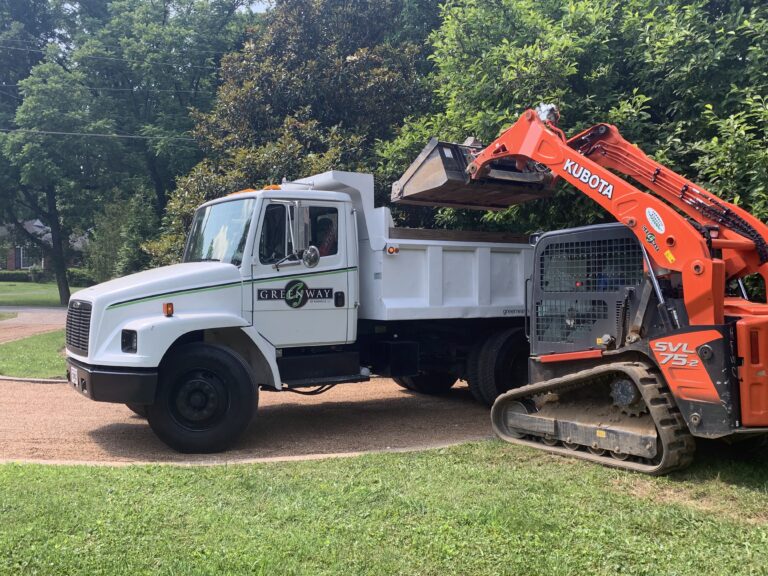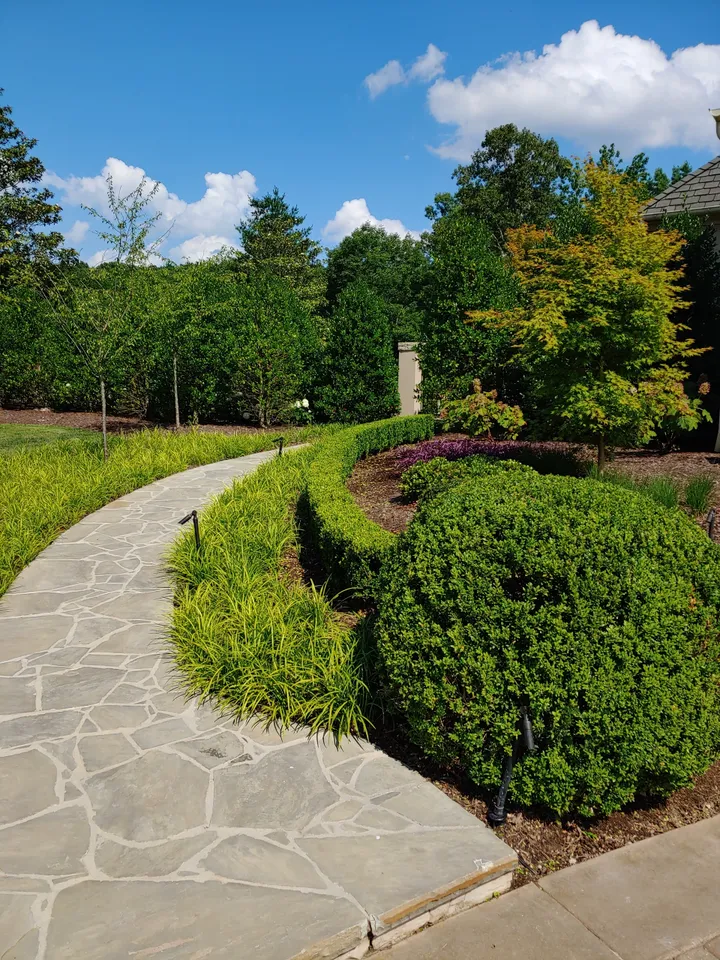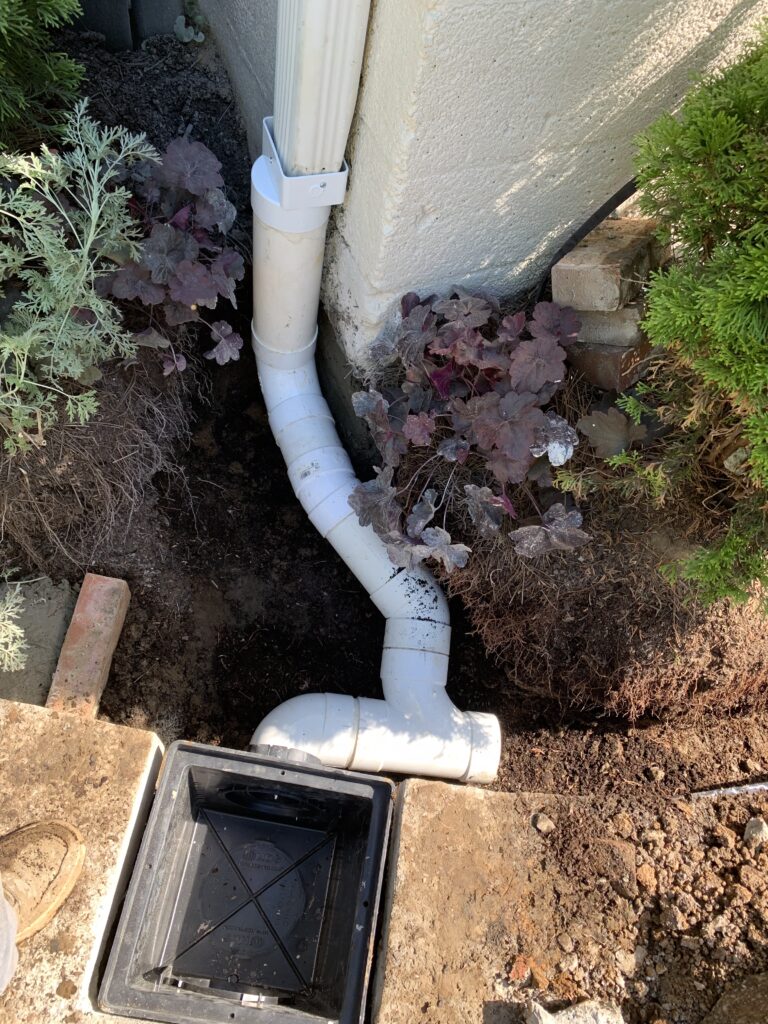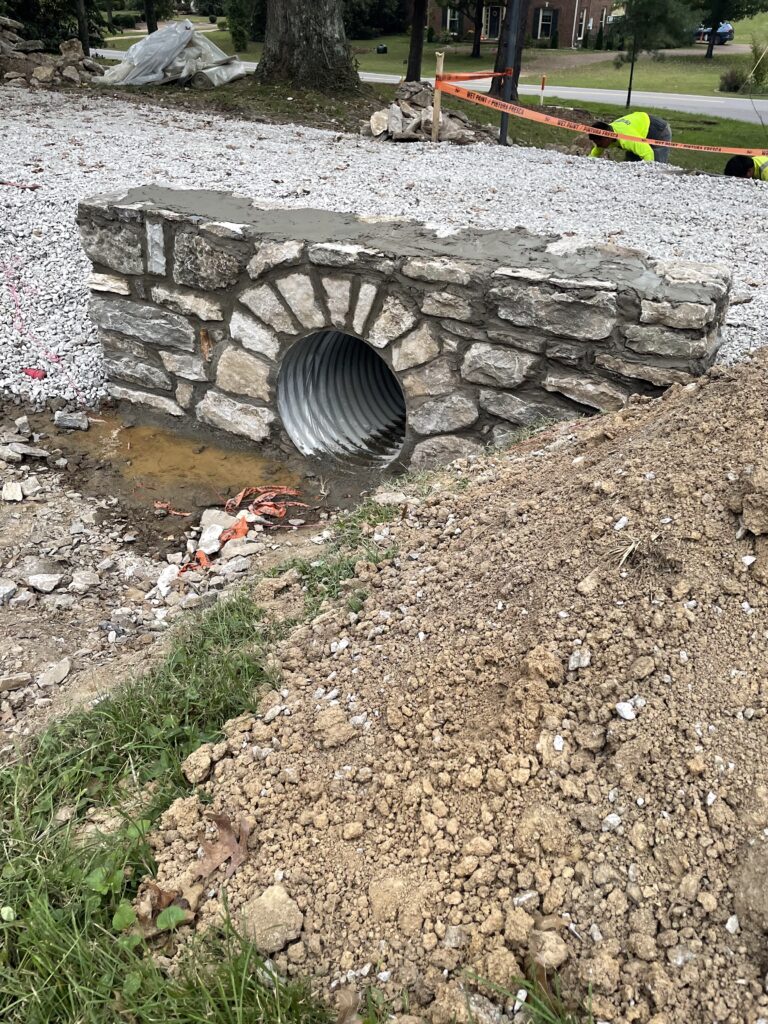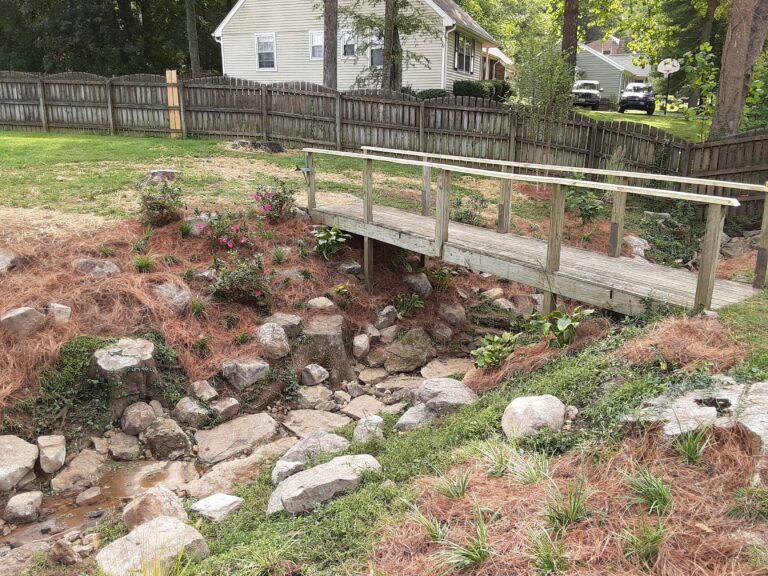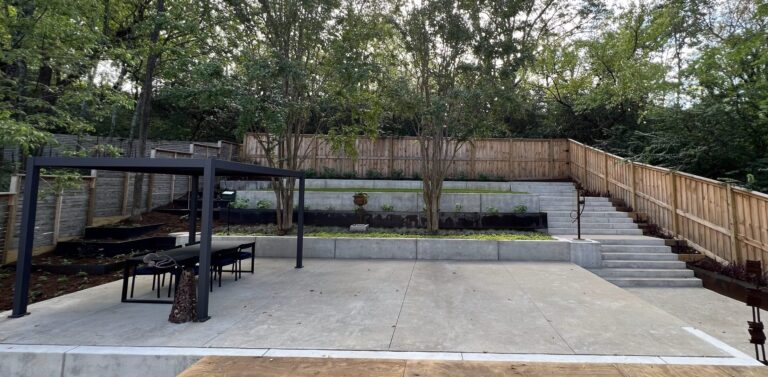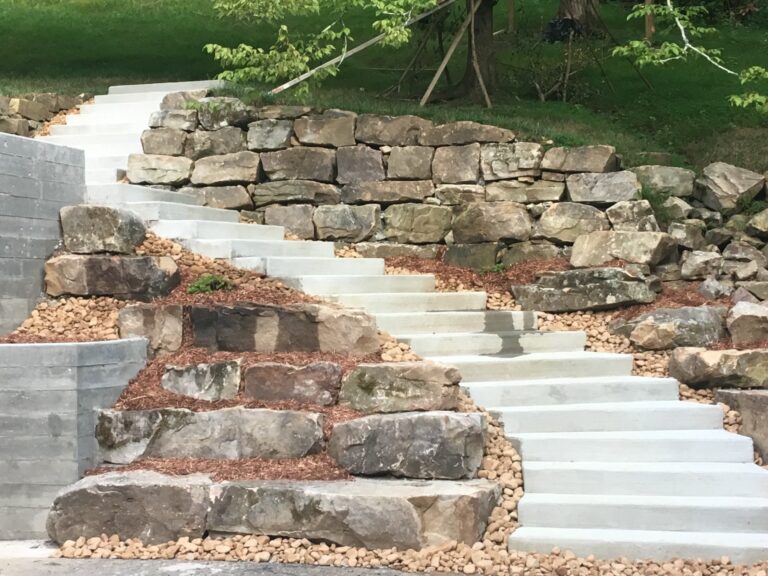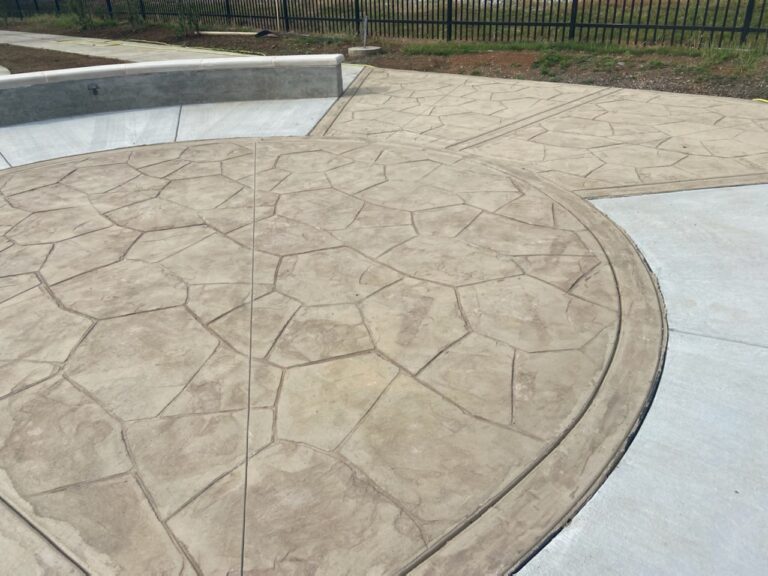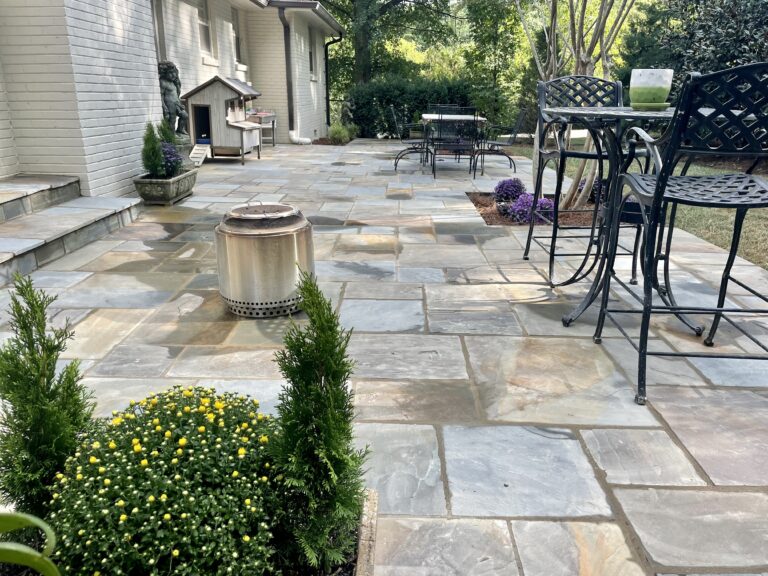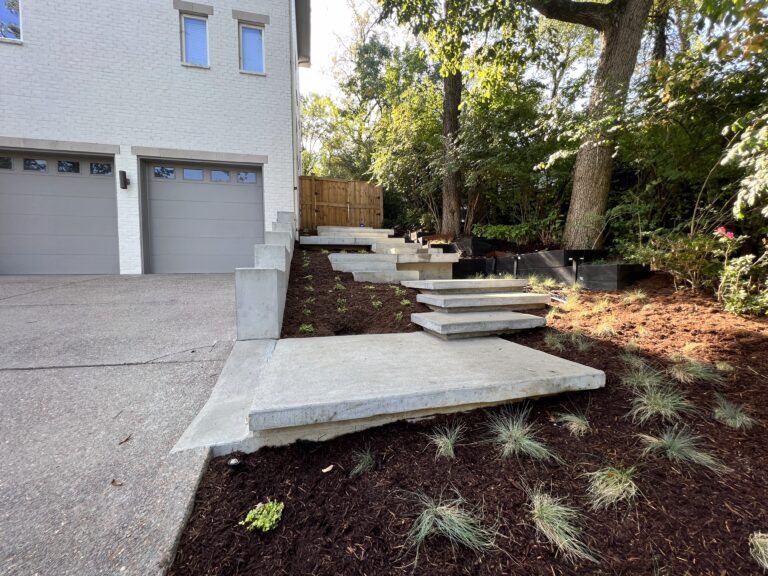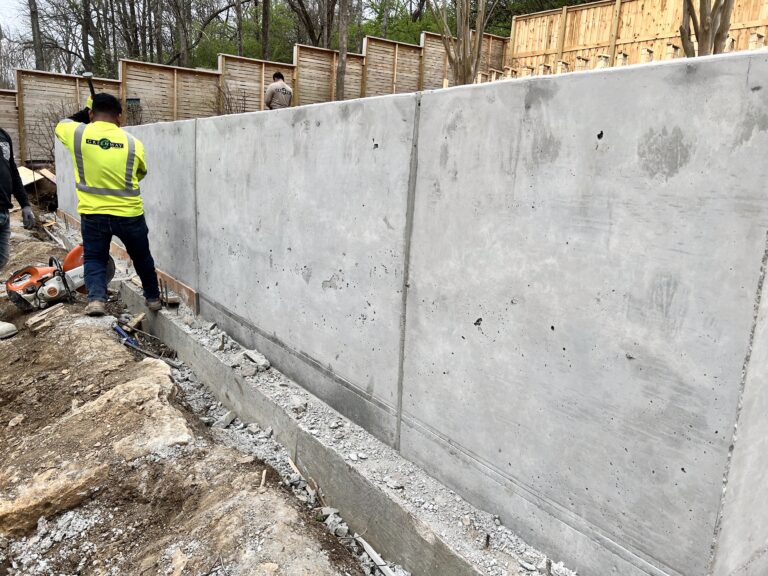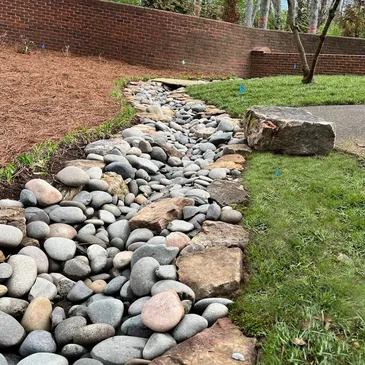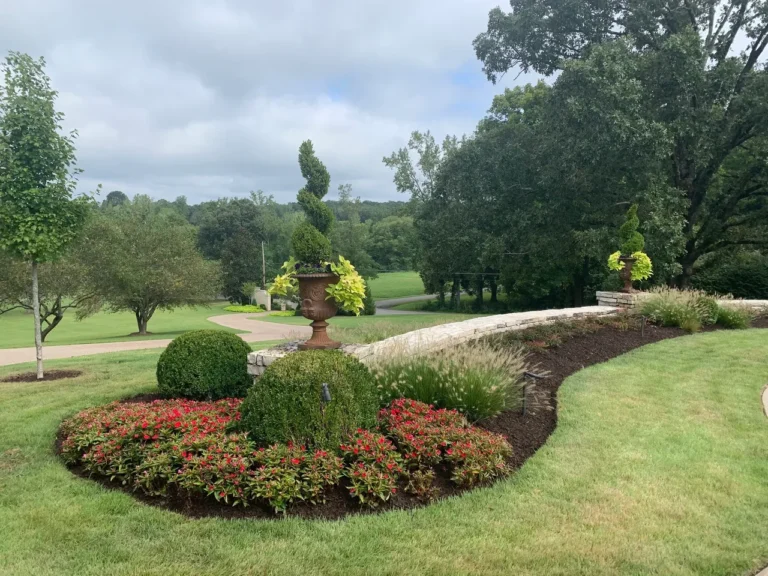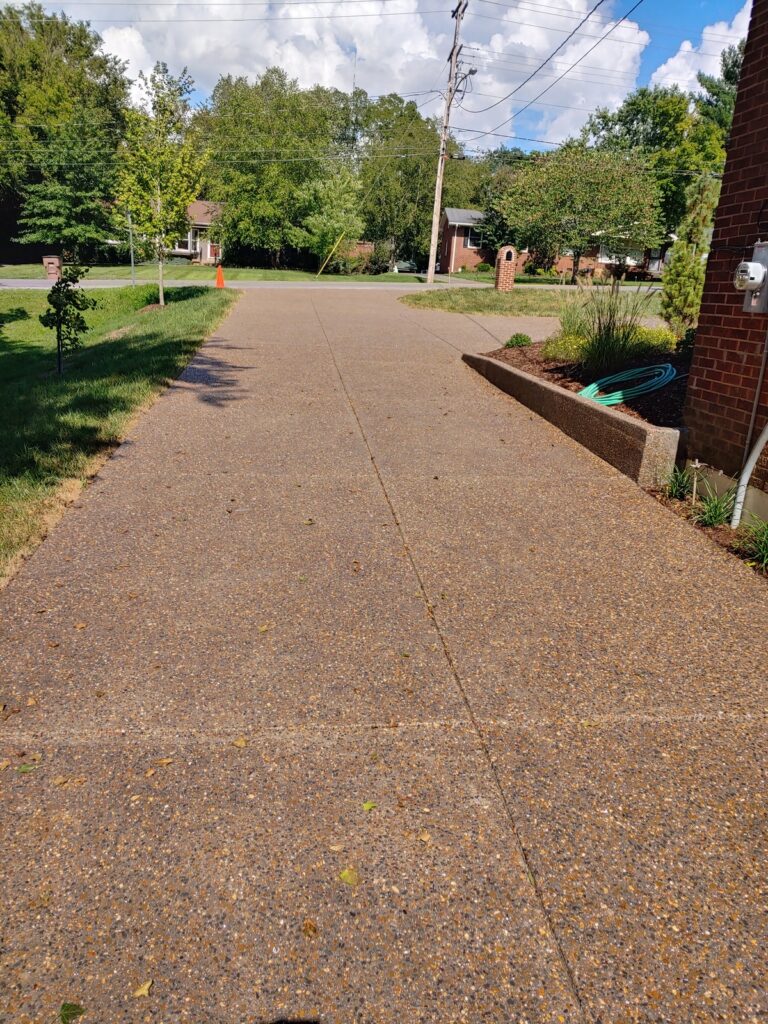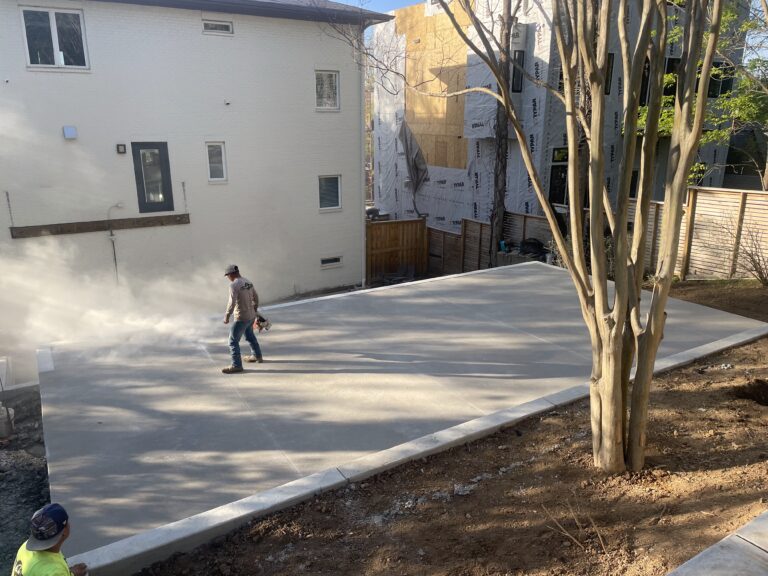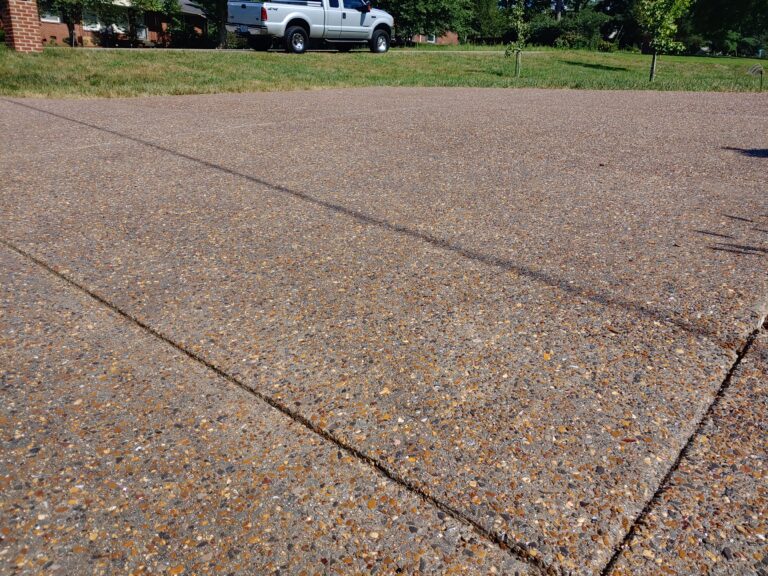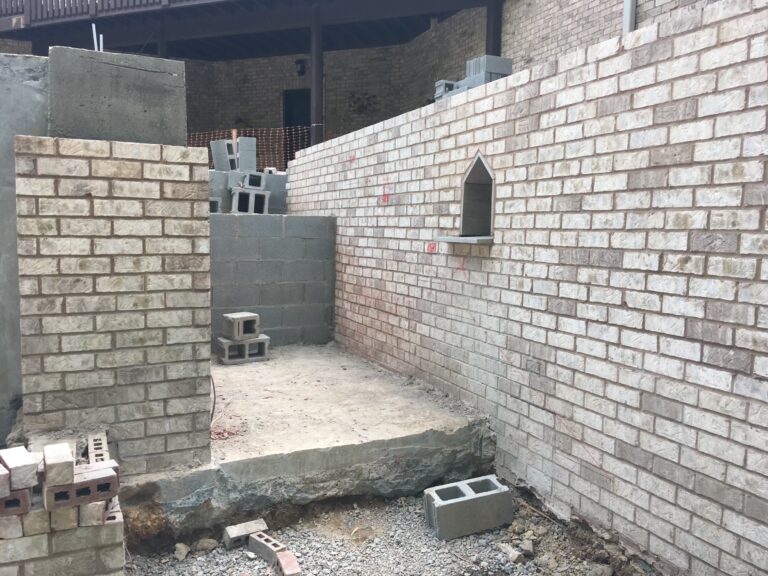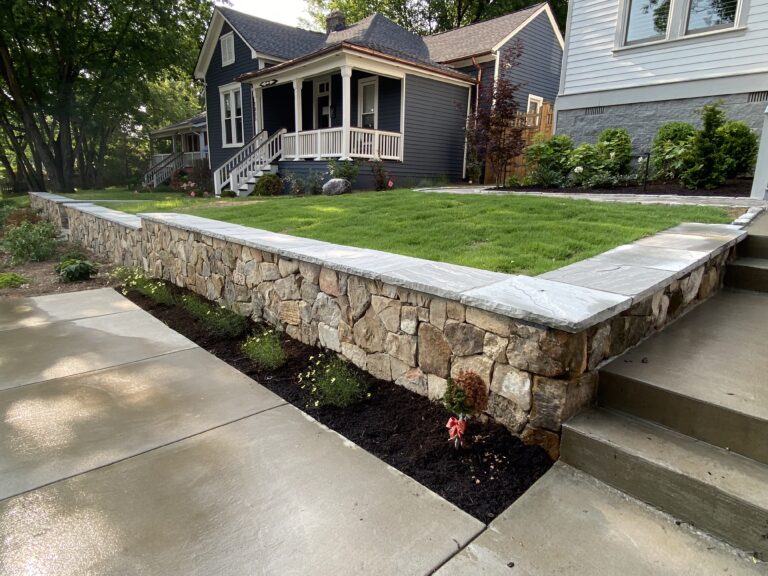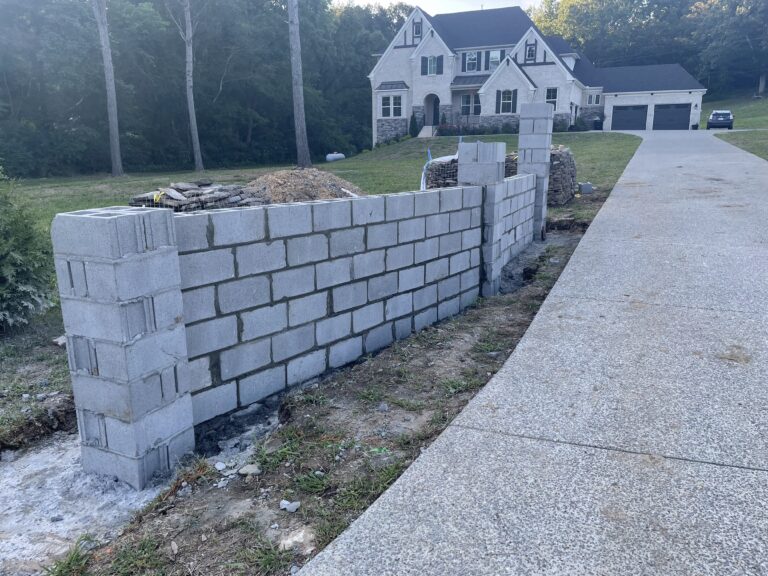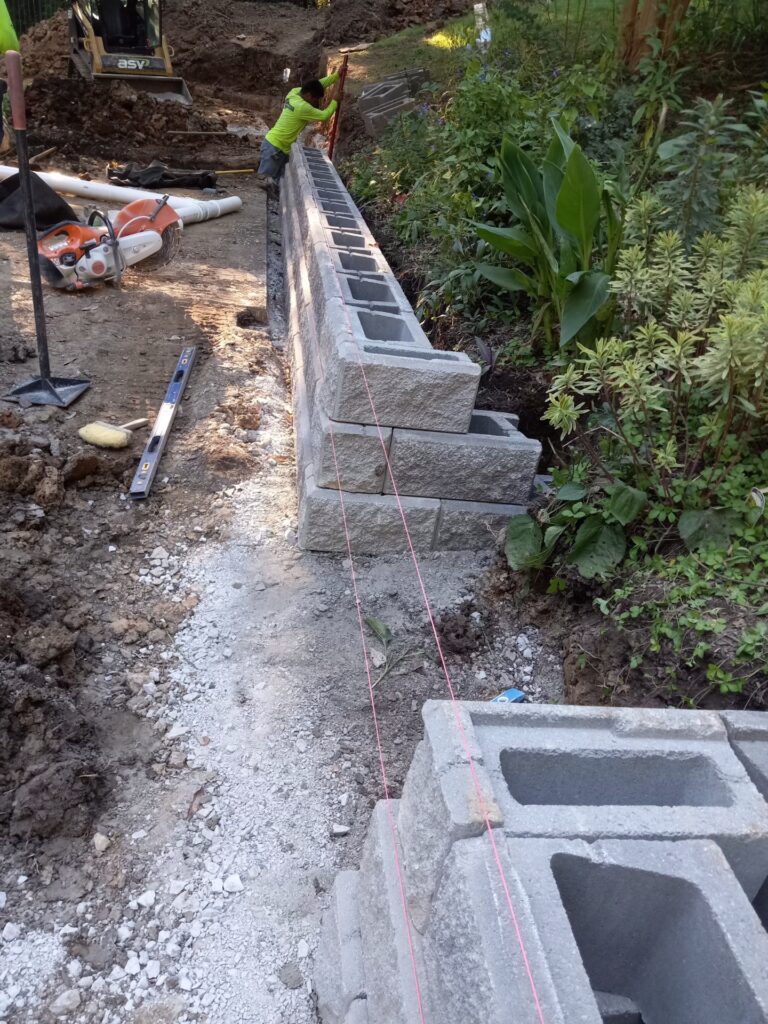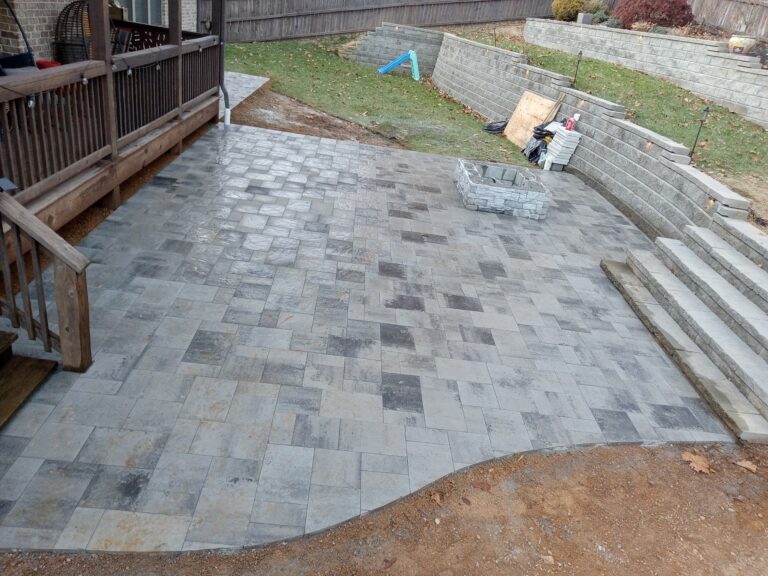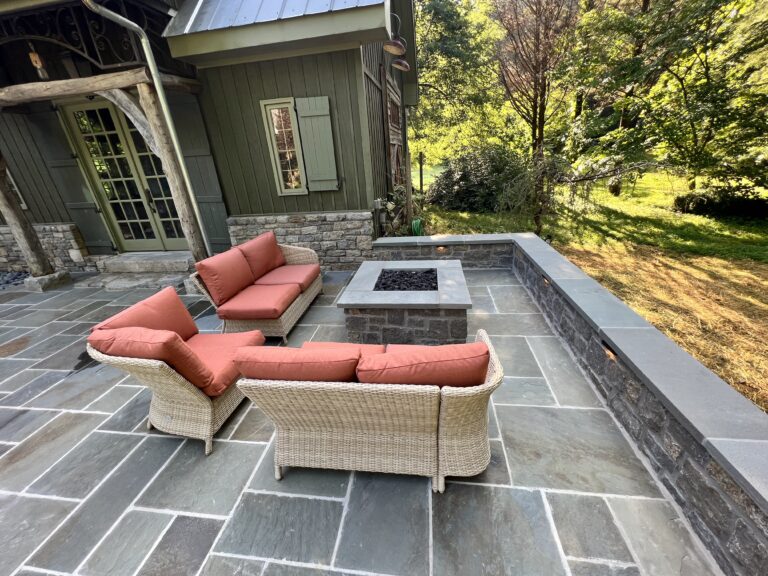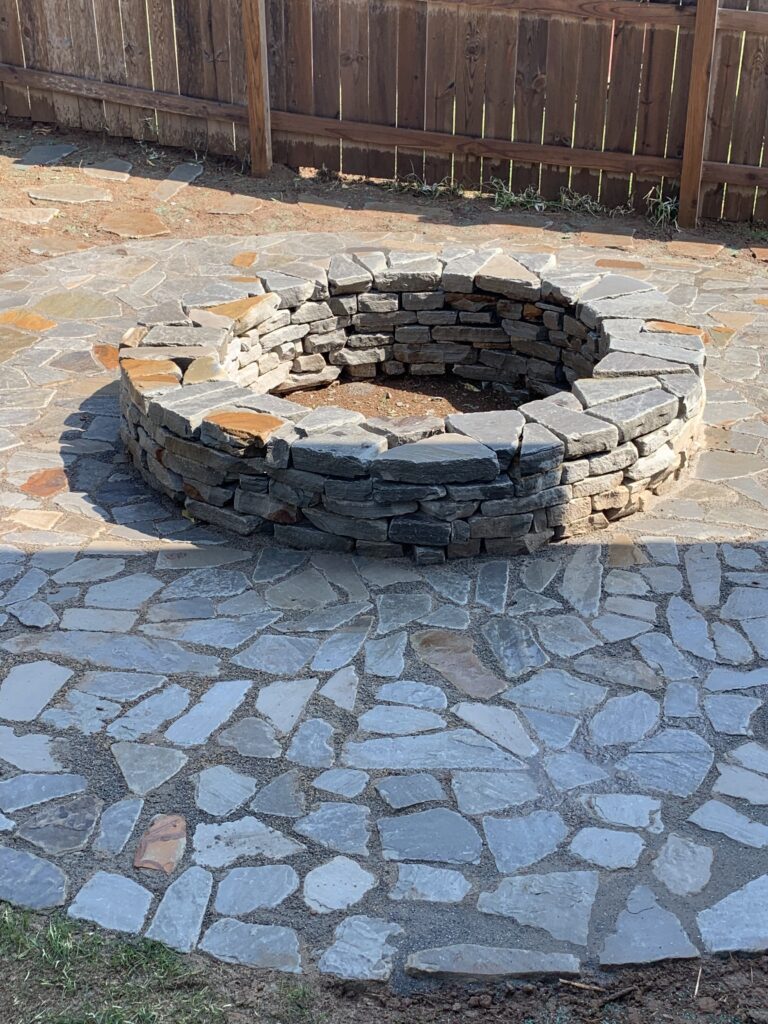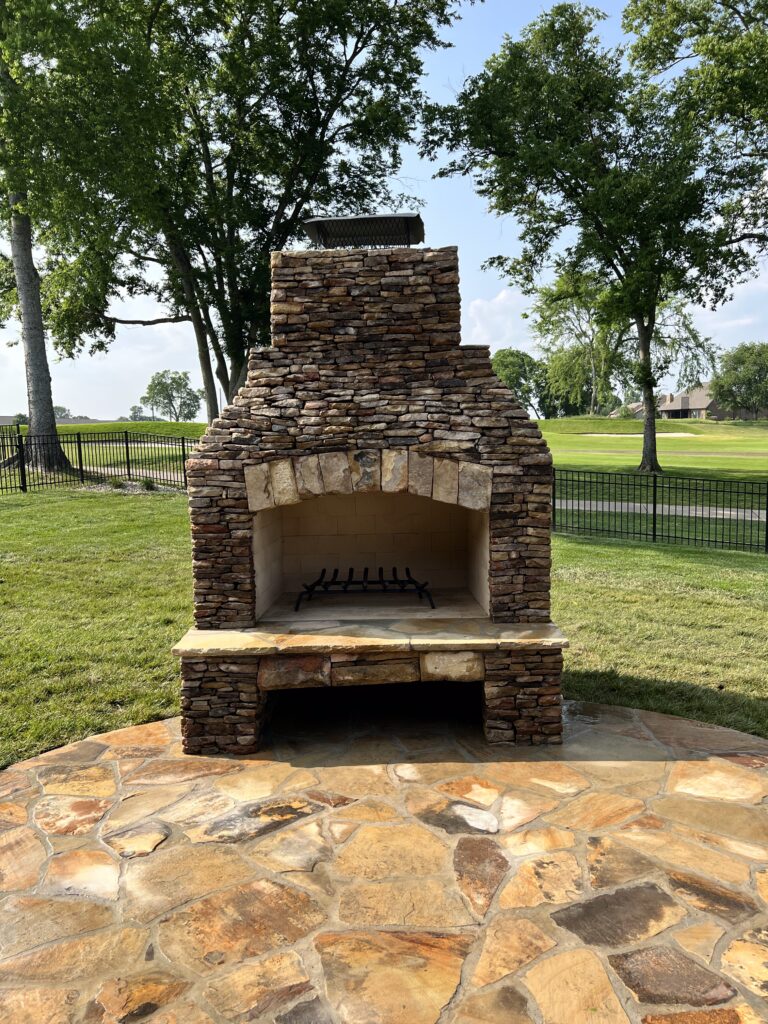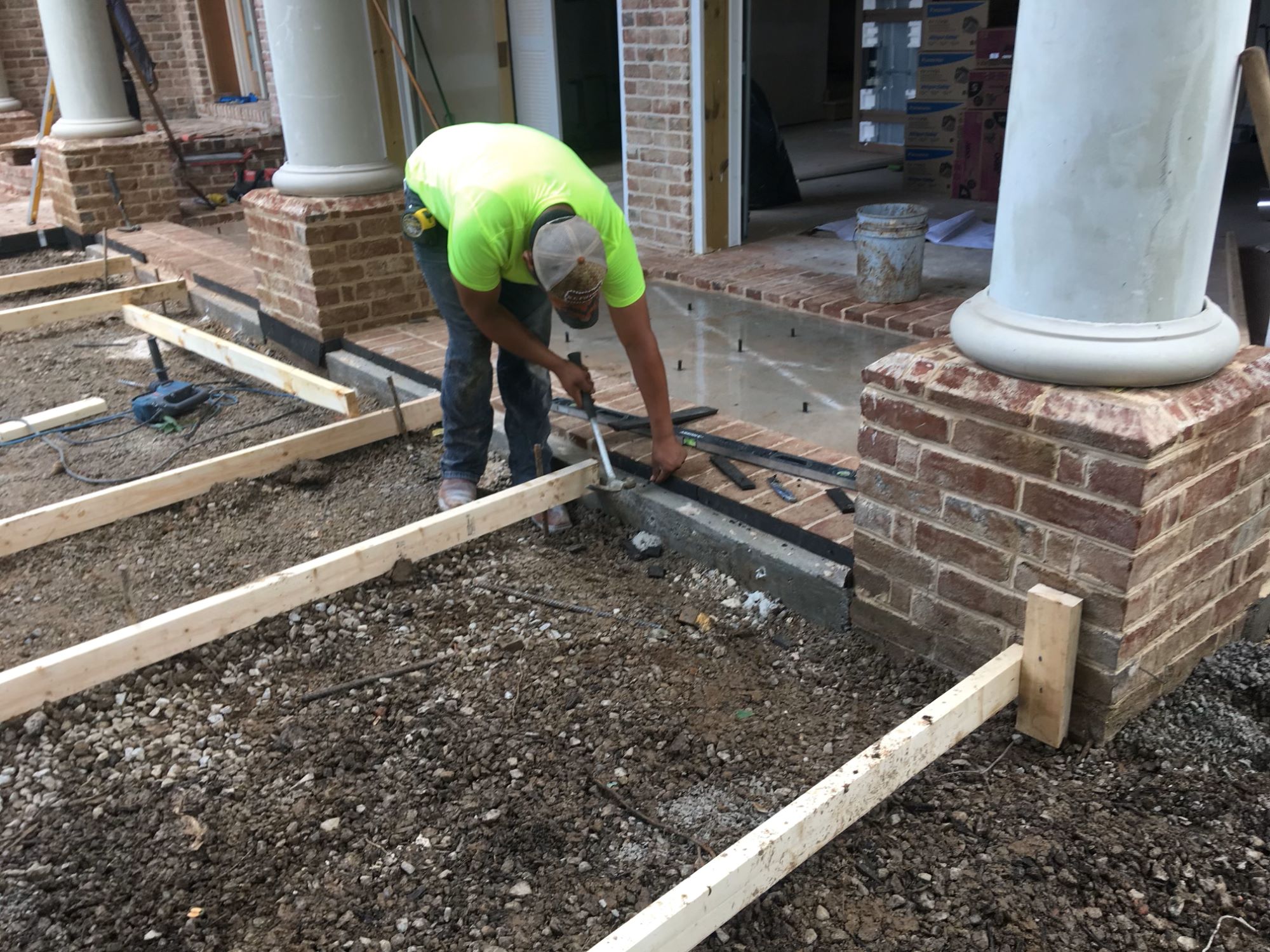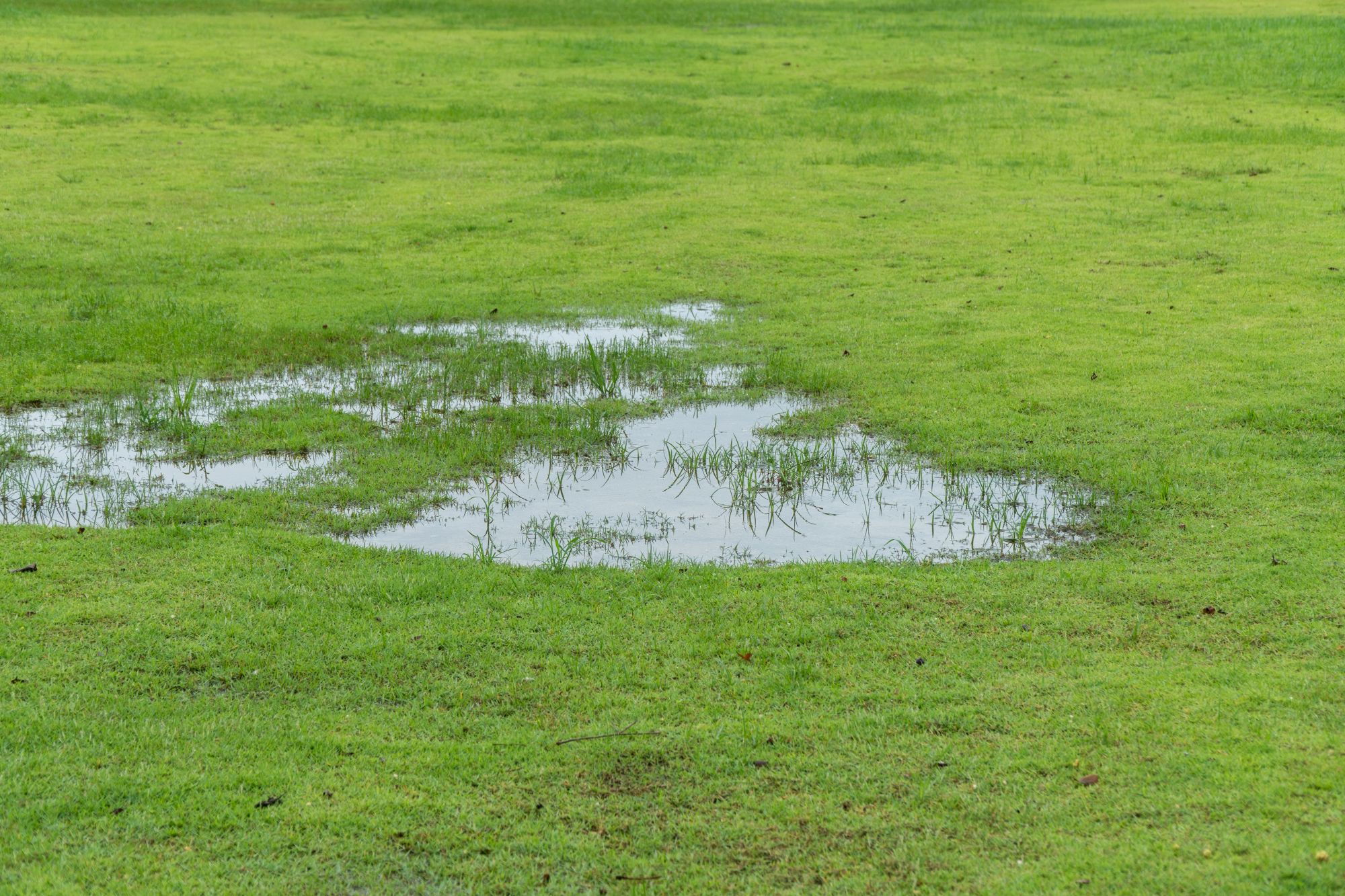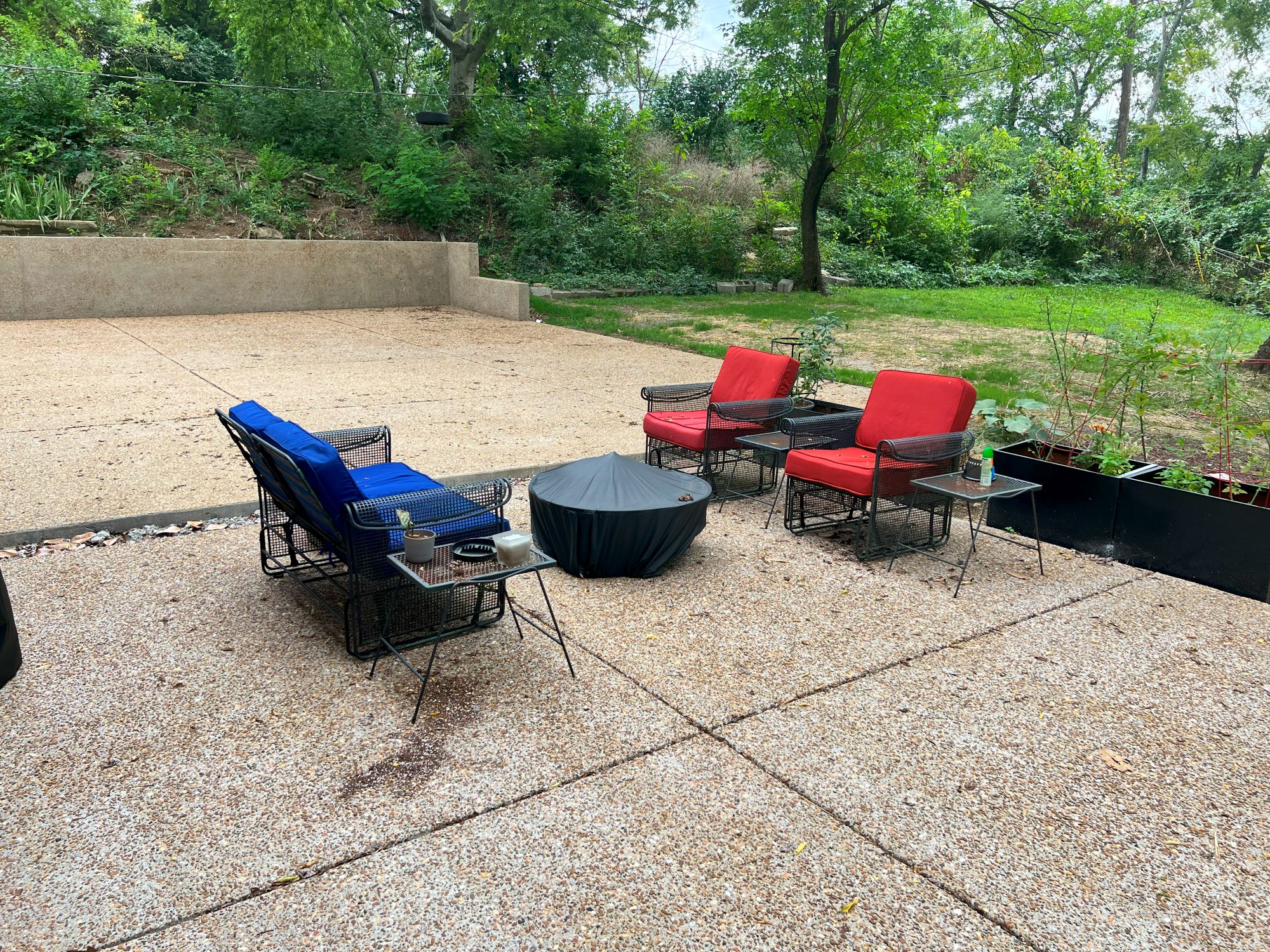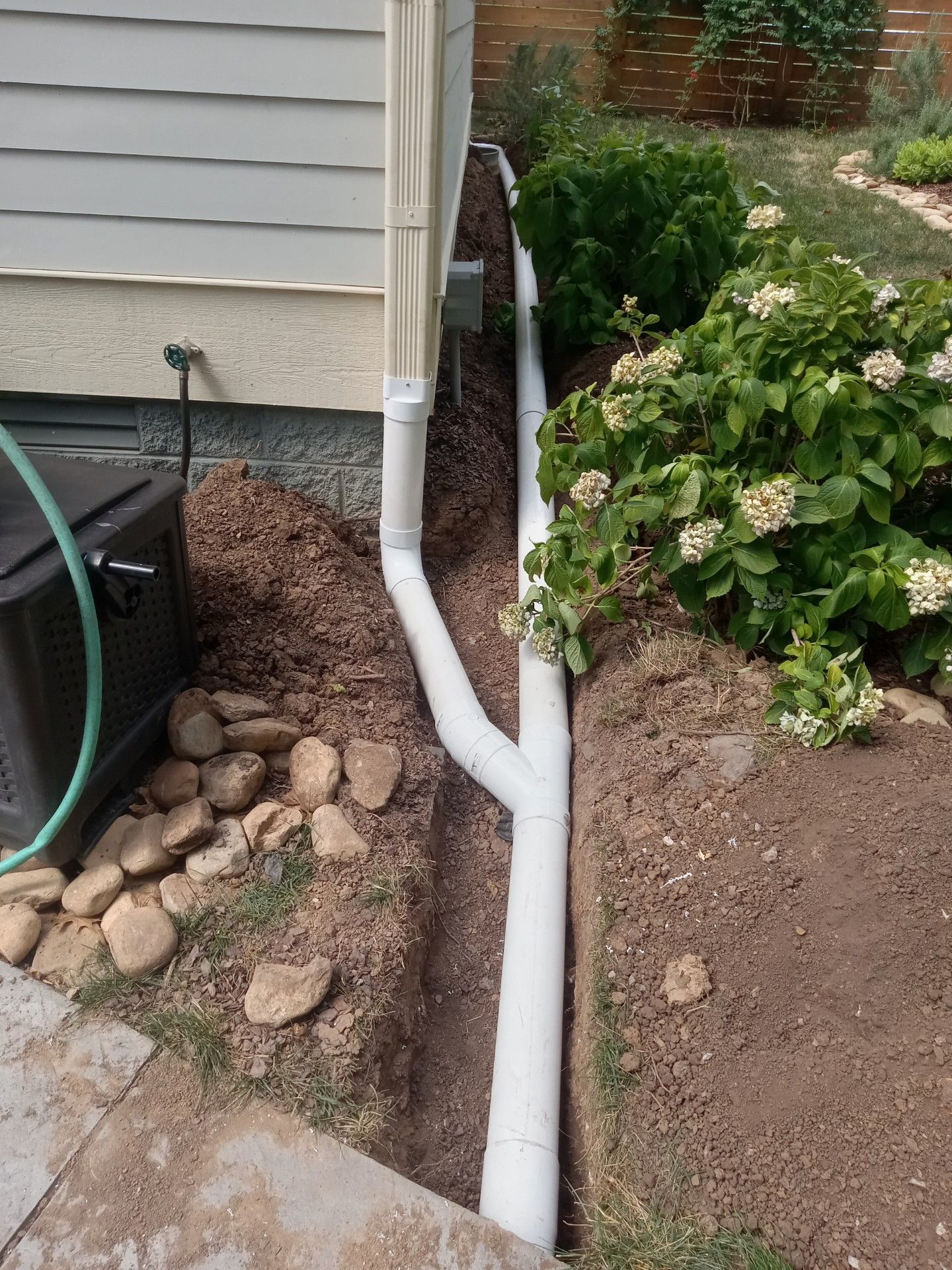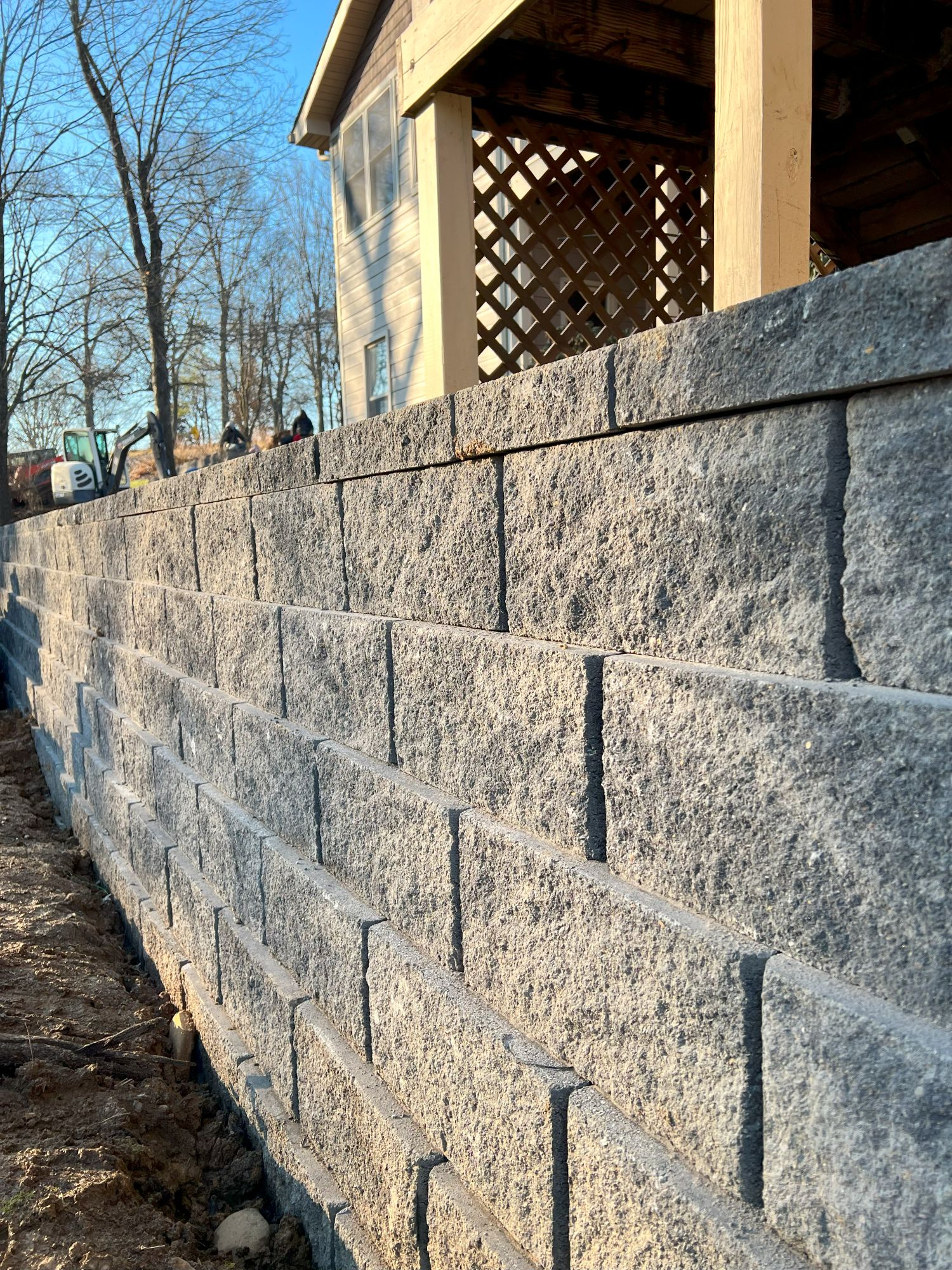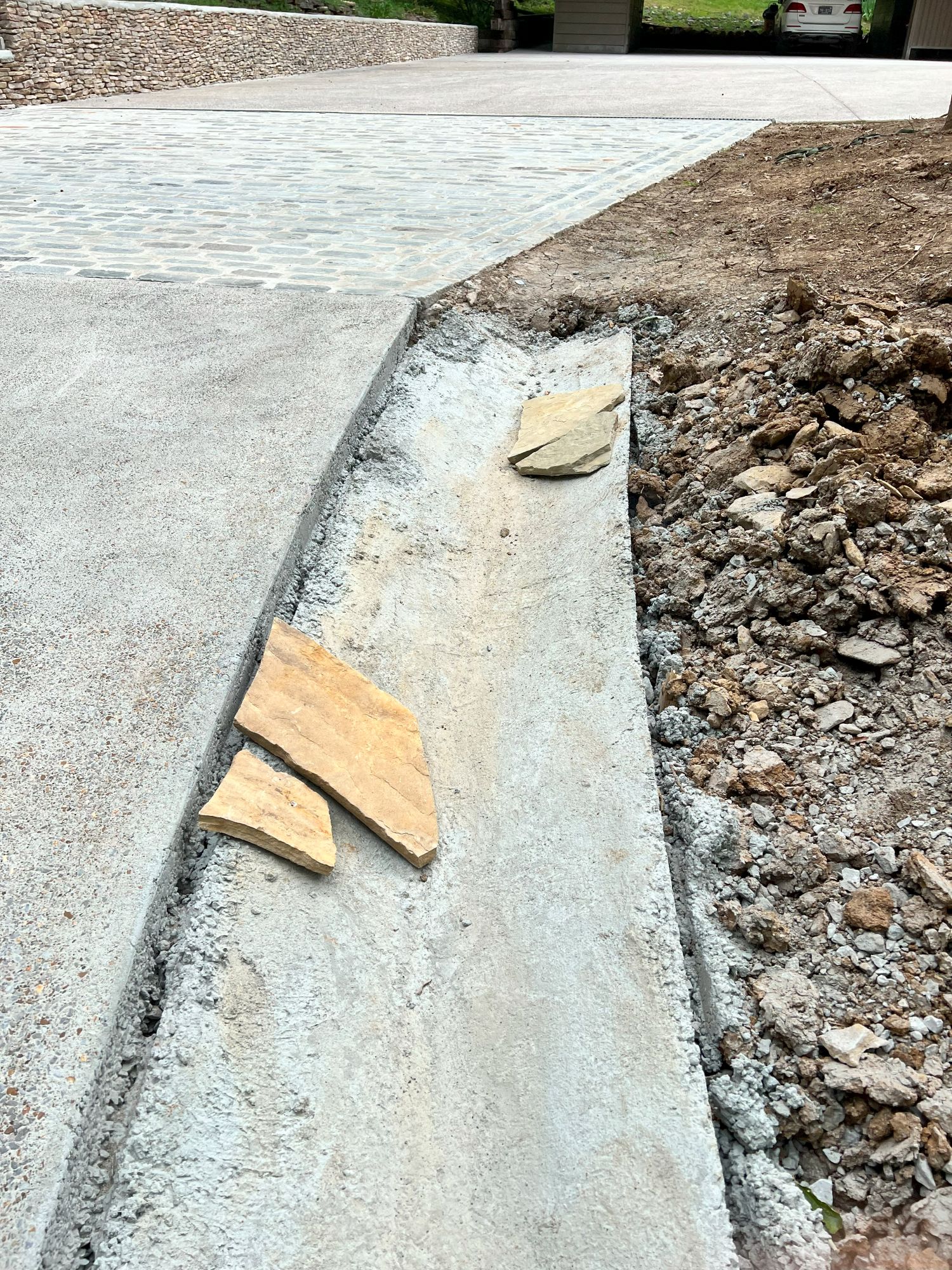Certain materials used in hardscaping and construction are ubiquitous throughout the process, but you might not know them by name. Rebar is one such material; even if you’ve heard of it, you might not know its function. We’ll talk about what rebar is, the different types of rebar, what kinds of hardscaping projects use rebar, how it can benefit driveways and patios, and how expert installers leverage this tough material.
What Is Rebar, and What Are the Benefits?
“Rebar” is shorthand for steel reinforcement bars. Rebar provides extra tensile support inside concrete structures such as walls, bridges, or buildings. Concrete is strong but can break or crack under heavy loads, so the rebar bulks up the ability of concrete to withstand tension. Rebar actually allows thinner layers of concrete to be used because of how well it adds to the support. It creates a skeleton within the structure as the concrete hardens and is used in everything from bridges to walls and porches.
Materials expand and contract when the temperature hits certain ranges. Concrete and rebar have very similar thresholds for this, making them work well together as they react similarly to weather changes.
In residential hardscaping, rebar is used in driveways and patios made of poured concrete. The benefit of using rebar in these projects is that it gives the construction extra reinforcement so that it lasts longer. For high-traffic areas like driveways, this could equate to several years of extra use. Whether you plan to be in your home long-term or will sell it in the near future, rebar adds to the longevity and value of the project.
What Are the Different Kinds of Rebar?
Rebar is generally made from carbon steel, but the composition varies greatly. The amount of carbon in the steel is one variation that can be found in its manufacturing, leading to the aptly named categories of low-carbon, medium-carbon, and high-carbon steel. The more carbon there is, the stronger the rebar, but higher carbon levels also make the material less flexible. Several variations among these categories include whether the rebar is smooth or textured, and certain kinds are better for low- versus high-moisture areas as they may better resist corrosion. There is also stainless steel rebar, galvanized rebar, glass fiber reinforced polymer (GFRP) rebar, and epoxy-coated rebar, among other variations. Each has certain features that change the type of construction or environment the rebar is best suited to.
Rebar is a graded material, meaning it is rated based on its minimum yield strength. The higher the grade, the stronger the rebar. A grade 100 rebar is stronger than grade 40, for instance. Grade 40 and grade 60 rebar are usually enough for projects like a driveway or a patio. If a particular grade is required for construction, a lower grade cannot be used as a substitute, but a higher grade can.
Like most construction materials, rebar also comes in a variety of sizes. It is categorized by the diameter of the piece, and while the categorization names vary from country to country, the measurements start at ¼” diameter and go up to 2 ¼”. The larger the diameter, the stronger the rebar. Small diameters are traditionally used in residential exterior projects, and larger diameters are more common in commercial structures like parking garages, high rises, and event stadiums.
Is Rebar Required in a Concrete Wall?
If a wall is made of concrete, rebar is an important part to include. It provides the advantage of added strength that can prevent costly damage in the long term. Residential concrete walls usually have narrow rebar of around ⅜” or ½” diameter set in the footers and wall before pouring. Effective rebar will need to be carefully planned, cut, and tied into the footer in order to provide extra durability to your walls. This requires the right equipment to be able to cut the rebar and bend it if there are any curves in the concrete wall. Once the pieces are cut, they’re situated in a grid pattern, creating even intersections at least every two feet. The points where the rebar crosses or intersects one another should be secured in order to keep the pieces from shifting. Small holders known as chairs are placed under the rebar to keep the pieces level when the footer is poured. Once the extensive work of preparing, laying, and securing the rebar is done, the concrete for the footer and wall can be poured.
“Work with skilled Nashville hardscaping and outdoor construction professionals who understand your vision and respect your schedule. Contact us for a free quote!”
Do You Need Rebar for a Driveway or Patio?
Concrete driveways and patios can benefit greatly from the extra support rebar provides. It isn’t make or break, but including rebar in necessary areas helps extend the life of a patio, especially for larger builds. Patio contractors should have the experience to help you go over the pros and cons of using rebar.
Relying on Expert Help for Rebar Done Right
Using rebar in your wall, driveway or patio is a smart move, but it is a process that can be difficult to accomplish if you haven’t done it before. Knowing which type of rebar is best, how to situate it prior to pouring the concrete, how much you will need, and doing the physical work of installing it aren’t easy. This is where working with hardscaping contractors gives you the benefit of a job done right without having to muddle your way through another DIY project. Hardscaping contractors are efficient at concrete patio and driveway construction through years of experience that help them make the right choices for you. They also have the equipment to cut and bend the rebar, which you may not have sitting around your garage.
If you’re looking for patio contractors near Nashville, you’ve come to the right place. We’ve been installing concrete walls, driveways, patios, and more for over two decades. Concrete is one of our preferred materials due to its return on investment for our clients, and rebar plays a role in why our clients have had exceptional walls, driveways and patios for decades. We will help figure out exactly how much material you will need, handle the installation, and leave you with a brand-new hardscape project that will stand the test of time.
With Greenway of Nashville, your consultation is free, and your quote is guaranteed. All you have to do is call (615) 238-4574 to see how easily you can have a new driveway or patio that’ll hold up for years to come.
Read more content related to:
